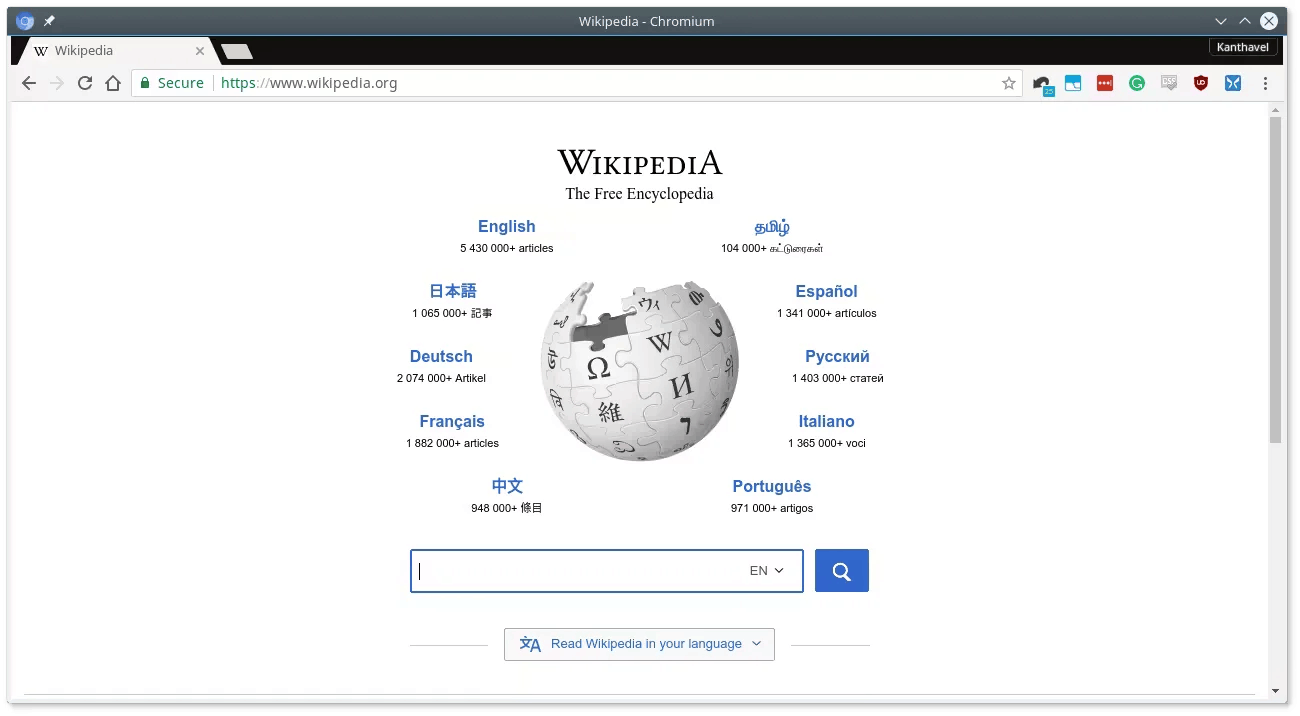

- CHROMIUM BROWSERS ANDRE HOW TO
- CHROMIUM BROWSERS ANDRE FULL
- CHROMIUM BROWSERS ANDRE CODE
- CHROMIUM BROWSERS ANDRE SERIES
CHROMIUM BROWSERS ANDRE SERIES
There is parallel work on a release series (2.57.x) based on a fork of the last Firefox ESR 60 release (which had almost 2 additional years of security updates compared to Firefox 56), but they haven't announced anything about that branch in 3 years:īased on their last status meeting, it sounds like SeaMonkey 2.57 is still on the back-burner, is currently missing back-ports and patches that have been applied to 2.53, and has compilation issues with Rust versions newer than 3 years old:
CHROMIUM BROWSERS ANDRE CODE
They've back-ported a lot of newer Firefox code where they could, but that leaves gaps, and they're still using code Mozilla hasn't supported in many years. The current SeaMonkey releases (2.53.x) are based on a (highly-patched/upgraded) fork of Firefox 56, which turns 5 years old tomorrow. Sadly, I doubt it's fully secure and it definitely isn't up-to-date. But I don't know how secure it is or if it's fully up to date. You could look into some forks like SeaMonkey. Moonchild has always waived his hands/paws at the security issues inherent in relying on Mozilla for security fixes when Pale Moon is using a ton of untested code that Mozilla removed years ago. I should point out that Tobin was/is an aggressively shitty person, so it may not be all bad. They weren't keeping up with the modern web when they had Tobin, and there's no way this gets better without him. Tobin stormed off 6 months ago, and tried to nuke the project on the way out the door, so now there's one main dev and a few contributors. They never had the resources or expertise needed to maintain a competitive and secure browser, and an army of skilled volunteers failed to appear to help, so they filled all the gaps with FUD (" HTTP/3 is bad", " Rust isn't strongly-typed", "WebAssembly can run arbitrary code", etc.) and trudged on for 5 years. They hated Mozilla's decision to remove XUL and thought they could build a better browser on their own. Pale Moon uses a hard fork of Firefox 56 because of the egos of its two main dev's (known as Moonchild and Tobin).
CHROMIUM BROWSERS ANDRE FULL
It's a still way better situation than, say, 10 years ago but still not optimal.Nobody should be recommending Pale Moon without providing a full disclosure of the significant risks that come with it.

The "sad" part is that most of this innovative force comes from Google and Chrome, forcing Microsoft to give up, leaving Firefox to hobble behind and Safari. Many already reported by other comments here: Houdini, Web Assembly, PWAs. It's just a couple of things here, but there are really a lot. We've done it countless times, abusing the language thanks to webpack, but the act of importing a CSS file into JavaScript won't be a mere dream anymore, but a reality!īut first, we'll have JSON and HTML imports later, we could have custom loaders for everything we need to have as a dependency.
CHROMIUM BROWSERS ANDRE HOW TO
Now, those proposals need to reach stage 4 to become officially part of the language, but reaching stage 3 means that browsers, Node and TypeScript will start to implement them soon, so they will be de facto usable.Īs we've seen with the new kv-storage API, browsers will start implement new features not by exposing some new global object, but rather by built-in modules prefixes by std.īut the most interesting part is about import maps: they instruct the environment how to resolve package names, so that would mean a super nice way to polyfill missing features, loaded just if needed. A couple of days ago the Nullish Coalescing operator had reached stage 3, and a couple of hours ago the Optional chaining proposal did the same! Oh boy, a lot of stuff is coming! Oh well, I guess it's always a lot of stuff, actually.


 0 kommentar(er)
0 kommentar(er)
